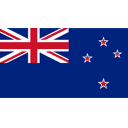Doing business with a Pakistan PEO/EOR
Located in southern Asia, Pakistan has a population of just under 200 million people, making it the 6th most populous country in the world. The national language in Pakistan is Urdu, but there are dozens of first languages spoken in the country. In Pakistan, is is essential that you obtain a reliable third-party introduction as a means to developing a professional working relationship with an employee or corporation. Business decisions are made almost exclusively by senior executives, so the process of doing business in Pakistan can take longer than it does in other countries.
Why Use a PEO in Pakistan?
The process of obtaining work visas and expanding your business into Pakistan with legal compliance can be both challenging and time-consuming. A PEO solution can simplify this process for your business by managing the hiring and onboarding processes so your company does not have to manage it yourself. Local experts can also help expedite office space rentals, manage employment contracts, and much more.
Best Pakistan PEOs and Employers of Record
Horizons
Horizons is known as one of the most respected PEO organizations in Pakistan. Businesses of virtually all sizes, from small businesses to startups to Fortune 500 companies, all trust Horizons with their PEO services and place high value on the company’s ability to hire talented professionals in Pakistan within days, as opposed to the usual months.
Horizons offers a full suite of business services; from contract drafting in Urdu and English, to sourcing, hiring, and onboarding, and additionally to setting up social security and handling local disputes.
Website: Horizons
Sky Executive
SkyExecutive is a recruitment agency and Professional Employer Organization (PEO) with active operations in Pakistan. This means that Sky Executive has the ability to combine recruitment and day-to-day employment solutions for companies looking to expand overseas. SkyExecutive places high value on its network of local consultants, as that level of local expertise is extremely helpful for companies looking for a smooth transition into a new business environment.
Website: Skyexecutive.global
Velocity Global
Velocity Global has become a well-known source of end-to-end services for new international expansion projects. The Colorado-based company provide a helpful online Resource Center for information on foreign expansion, the important details of PEOs, and the best business practices on approaching talent acquisition overseas.
Advertising themselves as a company that can provide a fast onboarding process, Velocity Global has entities in 185 countries, including Pakistan. Their focus on cloud-based tech is especially appealing to companies with several existing foreign entities.
Website: Velocityglobal.com
Request a Proposal
If you are interested in expanding your business operations into the Pakistan, GlobalizationPedia can help match you with a PEO that best fits your needs at a cost-effective rate. Fill out the form below and we’ll use our extensive database of strategic partnerships to provide you with a full breakdown of the best potential Pakistan PEO matches for your company.
How useful was this post?
Click on a star to rate it!
Average rating 4.5 / 5. Vote count: 2
No votes so far! Be the first to rate this post.





































